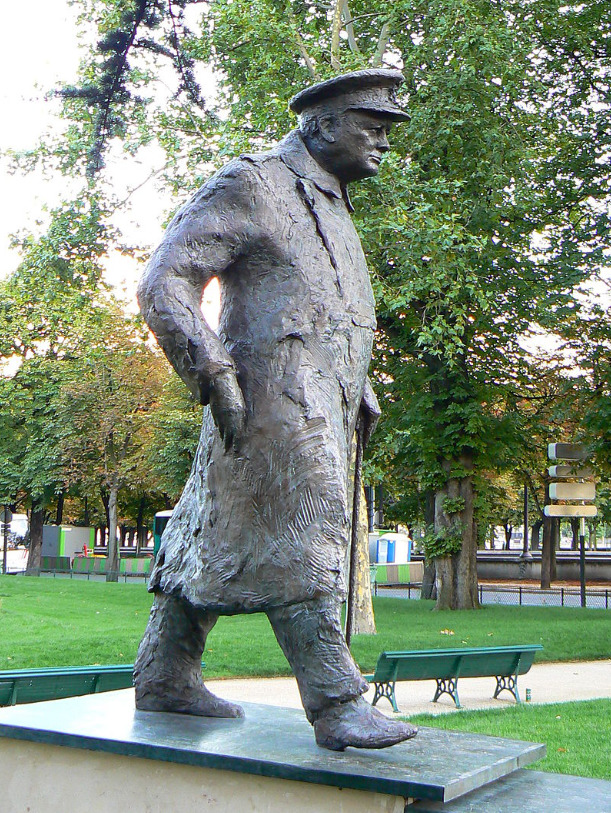« L' Histoire me sera indulgente, car j'ai l'intention de l'écrire » - Winston Churchill

Winston Churchill est né le 30 novembre 1874 à Woodstock et meurt le 24 janvier 1965 à Londres. Il est difficile de résumer la vie de cet homme en quelques lignes. Militaire (décoré de la Victoria Cross durant la guerre des Boers), correspondant de guerre, homme politique, écrivain (prix Nobel de littérature en 1954), artiste peintre reconnu, mais surtout homme providentiel de la seconde guerre mondiale.
Bien longtemps après sa mort, Churchill conserve une place importante dans l'imaginaire politique britannique et reste reconnu comme l'un des hommes politiques les plus importants du xxe siècle, en raison de sa ténacité face au nazisme, de ses talents d'orateur et de ses célèbres bons mots. Tout en incarnant les valeurs d'humour, de flegme et de résilience que l'imaginaire collectif associe aux Britanniques, il est parfois critiqué pour son opposition à la décolonisation et son attitude jugée complaisante vis-à-vis de certaines dictatures.
À la suite d'une commande publique, l'artiste Jean Cardot, sculpteur et membre de l'Académie des Beaux-Arts, réalise une statue en bronze de Winston Churchill. En 1998, la statue est inaugurée en présence de la reine d'Angleterre Elizabeth II ainsi que du président de la République française, Jacques Chirac.
Cette statue est en bronze et mesure 3,17 mètres de haut. Elle met en scène Winston Churchill, marchant à l'aide d'une canne. L'œuvre est en réalité calquée sur une photo de l'homme d'État, prise le 11 novembre 1944 alors qu'il descendait les Champs-Élysées en compagnie du Général de Gaulle lors de la libération de Paris. Aux pieds du personnage, il est possible de lire les mots « We Shall Never Surrender », signifiant en français « Nous ne nous rendrons jamais ». Cela fait référence au discours « We shall fight on the beaches » prononcé par l'homme politique le 4 juin 1940 qui reste l’un de ses discours les plus connus.
Winston Churchill was born on November 30, 1874 in Woodstock and died on January 24, 1965 in London. It is difficult to summarize the life of this man in a few lines. He was a soldier (awarded the Victoria Cross during the Boer War), a war correspondent, a politician, a writer (Nobel Prize for Literature in 1954), a renowned painter, but above all the providential man of the Second World War.
Long after his death, Churchill still holds an important place in the British political imagination and is still recognized as one of the most important politicians of the 20th century, because of his tenacity in the face of Nazism, his talents as an orator and his famous bon mots. While embodying the values of humor, phlegm and resilience that the collective imagination associates with the British, he is sometimes criticized for his opposition to decolonization and his attitude deemed complacent towards certain dictatorships.
Following a public commission, the artist Jean Cardot, sculptor and member of the Academy of Fine Arts, created a bronze statue of Winston Churchill. In 1998, the statue was inaugurated in the presence of Queen Elizabeth II of England and the President of the French Republic, Jacques Chirac.
This statue is made of bronze and is 3.17 meters high. It features Winston Churchill, walking with the help of a cane. The work is actually modelled on a photo of the statesman, taken on November 11, 1944 as he walked down the Champs-Élysées with General de Gaulle during the liberation of Paris. At the feet of the figure, it is possible to read the words "We Shall Never Surrender". This refers to the speech "We shall fight on the beaches" made by the politician on June 4, 1940, which remains one of his most famous speeches.